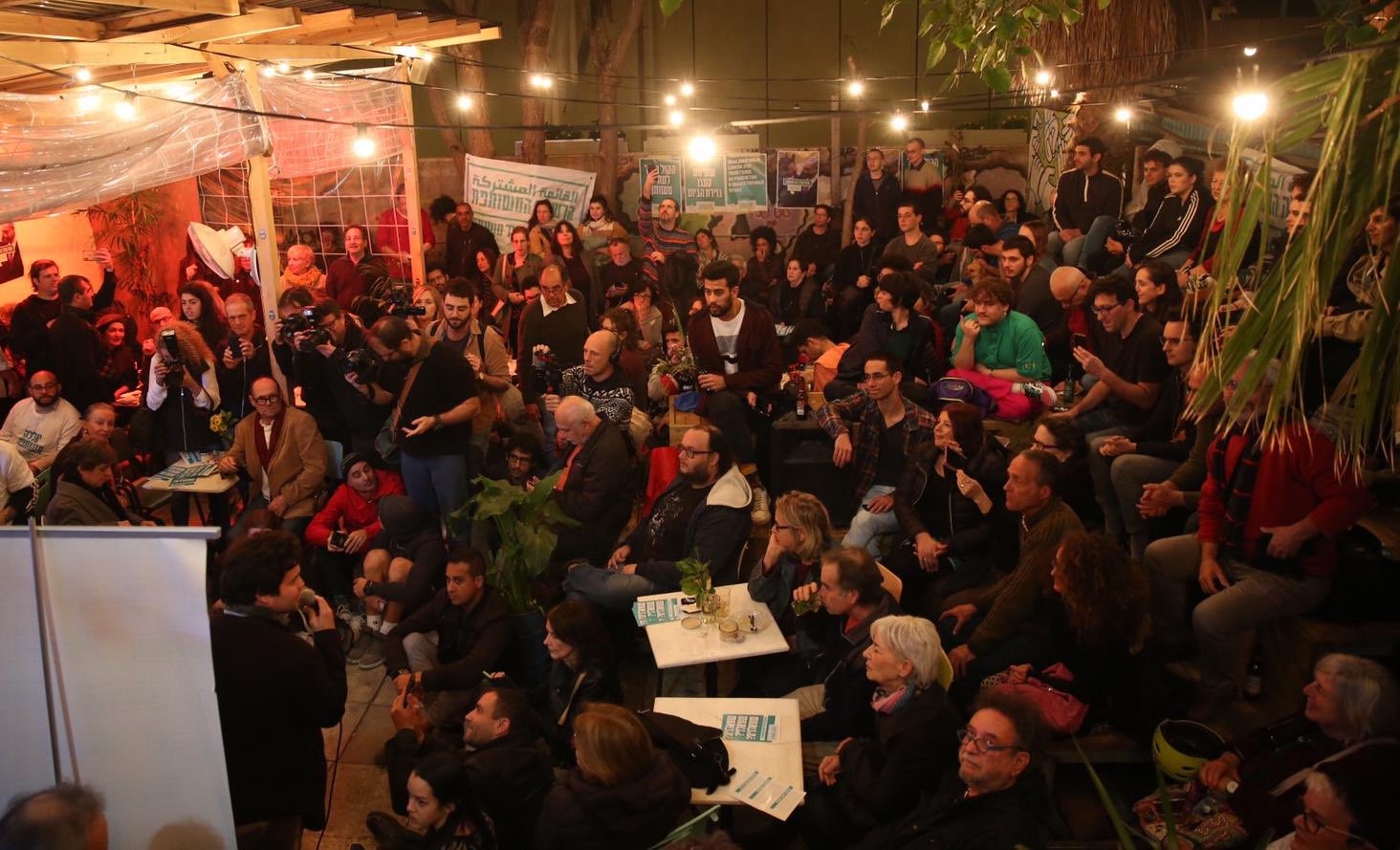Large numbers of left-wing Jewish Israelis are planning to vote for the Joint List in the upcoming general election, Haaretz has reported. Many of these voters are casting off Zionist center leftist parties like Meretz and Labor in favor of the coalition of Hadash and the Arab parties. This swing may lead the Joint List to gain up to two seats in the Knesset in the March 2 general elections. According to several polls, the Joint List will gain at least one more seat this time around, raising its number of MKs to 14 and possibly even 15. That would make it the largest opposition grouping in the Israeli parliament if a Zionist “unity government” were to be formed.

A meeting with Joint List leader, MK Ayman Odeh (Hadash), held in Tel Aviv last Tuesday evening, February 18 (Photo: Zu Haderech)
Haaretz reported many Jewish voters saying they do not feel that the Zionist left parties take a strong enough stance against the occupation. Former Meretz voter and history teacher Ofek Ravid, 28, a resident of Kibbutz Glil Yam, told Haaretz: “Arabs are a repressed minority in Israel, and I want there to be a voice that represents them. At one time, I could count on Meretz to fill that role, but I can’t any longer.” He continued: “I mean just look at their ambivalent response to the so-called Trump peace plan and their responses to the ongoing clashes in Gaza. The Joint List has a much clearer voice on these matters.”
Tel Aviv-based Dr. Omri Yavin, a lecturer in Seminar HaKibbutzim College who also used to vote for Meretz, is throwing his support behind the Joint List, saying the Zionist left parties had “failed miserably.” Yavin told his interviewer, “Maybe salvation will come from them. In Labor and Meretz, you no longer have any true leaders – just presenters. Ayman Odeh, on the other hand, has shown real leadership qualities, and I believe he is the only politician today with the skills to lead a social-democratic bloc dedicated to shared society and coexistence.”
The Joint List has begun reaching across sectarian lines and running campaigns in Yiddish targeting the ultra-orthodox (haredi) community with the campaign slogan: “Your vote against the conscription decree.” They have also been targeting Ethiopian Israelis in their election campaign, who have historically been marginalized by Israeli society. Like many Arab-Palestinians citizens in Israel, they face police brutality, and are treated as second-class citizens. The Joint list has also opened a Russian language campaign targeting residents of the former Soviet Union who are marginalized and discriminated against because of their status of being non-Jews.
Israel goes to the polls for the third time in a year on March 2, and despite the Joint List’s growing support, opposition leader MK Benny Gantz has vowed he will not include the Joint List in any coalition government he may lead.
Related: Joint List Launches Campaigns in Yiddish, Russian, and Amharic


